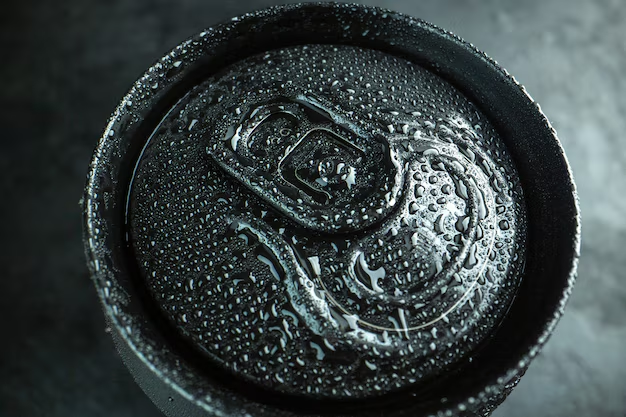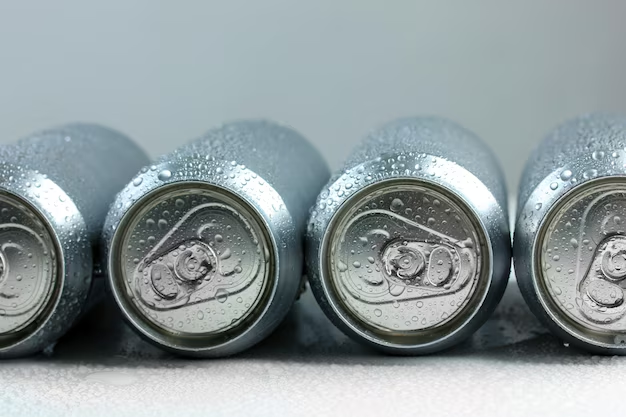Celsius energy drink has gained immense popularity, especially among fitness enthusiasts in the U.S. Known for its promises to “burn calories” and enhance workout performance, it markets itself as a healthier alternative to traditional energy drinks.
However, many people are questioning, is Celsius bad for you? Concerns revolve around its ingredients, caffeine content, and potential long-term effects on health. While it appeals to the fitness-conscious, understanding its true impact is essential. Let’s explore whether it lives up to its claims or poses risks to its users.
What is Celsius Energy Drink?
Celsius energy drink is a brand known for promoting fitness-friendly beverages. It’s marketed as a healthier energy drink, offering a variety of flavors and formulations like Celsius Originals, Heat, and BCAA+.
Ingredients
This energy drinks contain:
- Caffeine
- Green tea extract
- Guarana
- Taurine
- Vitamins (like B and C)
- Artificial and natural sweeteners, including sucralose and stevia
The drink is free from artificial preservatives and high-fructose corn syrup. It boasts claims such as “boosts metabolism” and “supports weight loss,” making it appealing to health-conscious consumers.
Is Celsius Energy Drink Bad for You?
Celsius may seem like a healthier energy drink, but there are several concerns about its ingredients and effects.

Caffeine Content and Its Effects
This energy drinks contain 200 mg of caffeine per can, equivalent to about two cups of coffee. For comparison:
- A typical cup of coffee: ~95 mg caffeine
- Other energy drinks: ~80–150 mg caffeine
This makes the drink one of the stronger energy drinks on the market. How much caffeine is in this energy drink can be concerning for those sensitive to stimulants. Excessive caffeine can cause:
- Jitters
- Insomnia
- Increased heart rate
- Heart palpitations
For people consuming multiple caffeinated products daily, the risks of overdose increase significantly. High caffeine intake can strain the heart, disrupt sleep, and cause anxiety.
Artificial Sweeteners and Additives
Celsius uses artificial sweeteners like sucralose and natural sweeteners like stevia to replace sugar. This raises the question: are they harmful?
Concerns about artificial sweeteners:
- Sucralose may alter gut bacteria and impact digestion.
- Studies suggest long-term use of artificial sweeteners could increase the risk of metabolic issues, though more research is needed.
While these sweeteners keep calories low, they might not be as harmless as they seem.
Impact on Metabolism and Weight
Celsius claims to “boost metabolism” and “burn fat,” but does it help with weight loss?
How it works:
- The caffeine and green tea extract in the drink may temporarily increase metabolism.
- Ingredients like guarana and taurine can give an energy boost.
Reality check:
Scientific evidence supporting long-term weight loss from Celsius is limited. Weight loss ultimately depends on diet and exercise, not a single beverage. While it might provide a temporary energy boost, relying solely on it for weight loss isn’t practical or sustainable.
Effects on the Heart and Blood Pressure
Energy drinks can significantly affect cardiovascular health. Does Celsius cause heart problems?
Potential risks:
- High caffeine content can raise blood pressure and cause irregular heartbeats.
- People with existing heart conditions may experience worsened symptoms.
Regular consumption of energy drinks has been linked to increased risks of heart-related issues, particularly in sensitive individuals. It’s essential to monitor how your body reacts to these drinks, especially if you have underlying health problems.
Potential Side Effects
Like all energy drinks, Celsius isn’t without side effects. Celsius energy drink side effects can include:
- Short-term: Jitters, anxiety, nausea, and headaches
- Long-term: Sleep disturbances, heart strain, and potential kidney damage
Is Celsius bad for your kidneys? Excessive caffeine can strain kidney function, particularly in individuals with pre-existing kidney conditions. Staying hydrated and avoiding excessive intake is crucial.
Who Should Avoid Celsius?
While Celsius might be fine for some, others should avoid it entirely.
Categories of People Who Should Avoid Celsius
- Pregnant Women:
High caffeine intake during pregnancy can increase the risk of complications. - People with Caffeine Sensitivity:
Symptoms like rapid heart rate, anxiety, and sleep issues are common in sensitive individuals. - Children and Adolescents:
Can teenagers drink Celsius? No, due to their lower tolerance for caffeine and developing nervous systems. - People with Heart Conditions:
High caffeine can exacerbate heart-related problems, making it unsafe for those with cardiovascular diseases.
Is Celsius Healthy?
Celsius energy drink positions itself as a health-conscious choice among energy beverages, but is it truly healthy? Understanding its benefits and limitations can help make an informed decision.
Benefits of Celsius Energy Drink
Celsius is marketed as a fitness-focused energy drink packed with vitamins and natural ingredients. Is Celsius good for you? Let’s examine its potential benefits.
Claims About Natural Ingredients
Celsius contains natural components like green tea extract, guarana, and ginger root. These ingredients are associated with antioxidant properties and mild metabolism-boosting effects. Additionally, it includes essential vitamins like B12, which helps energy production, and vitamin C, known for its immune-boosting properties.
Low-Calorie and Sugar-Free
One of Celsius’s main selling points is its lack of sugar and low-calorie count. Unlike traditional energy drinks that are loaded with sugar, Celsius uses sweeteners like sucralose and stevia, making it suitable for calorie-conscious consumers.
Comparison with Other Energy Drinks
Compared to typical energy drinks that use artificial preservatives and high levels of sugar, Celsius stands out as a slightly healthier choice. It avoids high-fructose corn syrup and synthetic flavors, appealing to those looking for cleaner energy.
While these benefits are appealing, they come with caveats. Overconsumption or reliance on energy drinks, even those marketed as “healthy,” can lead to health issues.
Balanced Perspective
To determine whether Celsius is healthy, it’s crucial to weigh the pros and cons.
Pros:
- Contains essential vitamins and natural extracts.
- Sugar-free and low-calorie.
- May temporarily boost metabolism and energy.
Cons:
- High caffeine content can lead to negative side effects like insomnia and heart palpitations.
- Contains artificial sweeteners like sucralose, which may affect gut health.
- Long-term health impacts are not well-researched.
It can be a convenient energy boost, but moderation is vital to avoid adverse effects.
How to Consume It Safely?
Celsius is not inherently harmful, but consuming it recklessly can lead to problems. Understanding safe consumption practices is key.

Recommended Daily Intake
Experts recommend limiting caffeine intake to 400 mg daily for adults. With 200 mg of caffeine per can, one or two cans per day is the maximum safe limit for most people. However, combining it with other caffeinated products like coffee or tea may exceed the recommended caffeine threshold.
Importance of Moderation
Overconsumption of energy drinks can cause:
- Insomnia
- Increased heart rate
- Jitters
- Dehydration
Staying hydrated and consuming it alongside balanced meals can minimize risks. Always listen to your body’s response and stop consumption if you experience adverse effects.
Alternatives to Celsius Energy Drink
If Celsius doesn’t meet your needs or concerns you, several healthier alternatives can provide a natural energy boost.
Healthier Energy Drink Options
- Zevia Energy: Contains natural caffeine and no artificial sweeteners.
- Guayaki Yerba Mate: A plant-based energy drink rich in antioxidants and low in sugar.
- Bai Bubbles: Offers mild caffeine and uses natural sweeteners.
These options offer energy boosts with fewer artificial ingredients compared to traditional energy drinks.
Natural Energy-Boosting Alternatives
- Green Tea: A natural source of caffeine and antioxidants.
- Black Coffee: Provides a clean energy boost without additives or calories.
- Smoothies: Blend fruits and leafy greens for natural vitamins and sustained energy.
- Nuts and Seeds: Packed with healthy fats and protein for long-lasting energy.
By switching to natural options, you can avoid the risks associated with energy drinks while still staying energized.
FAQs
Does Celsius Energy Drink Have Sugar?
No, Celsius energy drinks are sugar-free. Instead, they use sucralose and stevia to add sweetness without calories.
Is Celsius FDA Approved?
Celsius energy drinks are not FDA-approved in the sense of being explicitly evaluated. However, their ingredients must comply with FDA regulations for food and beverage safety.
Is Celsius Bad for Your Liver?
Excessive caffeine and artificial sweeteners in energy drinks like Celsius could potentially strain the liver over time. However, there’s no concrete evidence linking Celsius to significant liver damage when consumed moderately.
Can You Drink Celsius Every Day?
It’s not advisable to drink Celsius every day due to its high caffeine content. Daily consumption increases the risk of caffeine dependency, sleep disturbances, and other side effects.
What Happens if You Drink Too Much Celsius?
Drinking too much Celsius can lead to caffeine overdose symptoms like heart palpitations, dizziness, anxiety, and in severe cases, hospitalization. Always stick to recommended intake guidelines.
Conclusion
Celsius energy drink is a trendy choice for fitness enthusiasts, but it’s not without risks. While its claims of boosting metabolism and aiding weight loss are appealing, these benefits are short-lived and not a substitute for healthy habits. With high caffeine content, artificial sweeteners, and potential side effects, moderation is key. Always consider your health needs before consuming energy drinks like Celsius.

